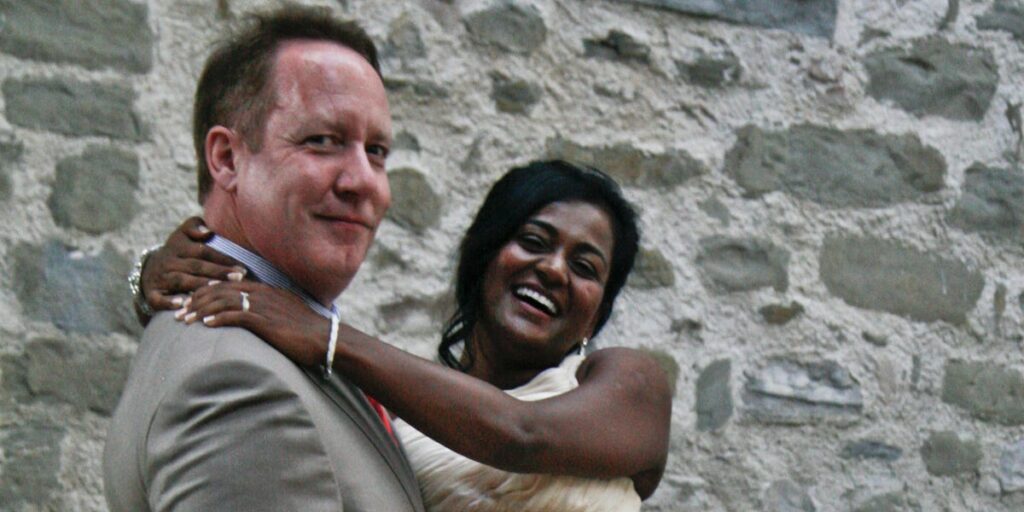This is an As-Told-To essay based on a conversation with Indu Navar, the CEO and Founder of EverythingALS. It has been edited for length and clarity.
My husband Peter Cohen and I have always been passionate about building transformative technology. With degrees in electrical engineering and computer science, I began my career at NASA and was part of the founding team of WebMD. After running my own company for 14 years, I turned to investing and advising, continually fascinated by big data and analytics. Peter spent nearly 18 years at Amazon, where he helped develop Amazon Mechanical Turk, a crowdsourcing platform.
Life was rewarding for us—until Peter began experiencing troubling symptoms with his ankle. Initially dismissed as a minor issue, it turned out to be a serious condition that eventually led to him being diagnosed with ALS after two years of tests, costing over $100,000. The reality is stark: every 90 minutes, someone is diagnosed with ALS, often receiving the same grim prognosis that has not changed in 80 years—typically, only 2 to 5 years to live following the first symptoms.
Peter received his diagnosis in 2018 and sadly passed away in 2019. This experience shattered us and sparked our determination as entrepreneurs to address the dire state of ALS. Following this loss, I established the Peter Cohen Foundation in an effort to honor Peter and work toward finding a cure for ALS. Together, we often discussed how we would tackle the challenges posed by this disease had we known about them sooner.
Through the Peter Cohen Foundation and EverythingALS, our mission is to leverage technological innovations to improve the lives of those affected by ALS and other neurodegenerative diseases. We are engaged in monitoring and assessing clinical trials while using sensors to predict progression in patients, tracking parameters like speech, breathing, walking, and fine motor skills.
Currently, we lack effective tools to assess if medications are truly benefiting ALS patients. Traditional evaluations rely on subjective patient-reported outcomes, asking questions that haven’t evolved significantly in years. For example, one question on speech might not apply to all diets.
By using advanced sensors, we can predict a patient’s condition in the months to come, enabling early diagnosis and proactive care. Our approach is termed citizen-driven research, where we collaborate directly with patients to gather data and insights. We provide them with sensors to wear, facilitating remote monitoring.
Our EverythingALS app connects patients with others on similar journeys and includes a generative AI tool designed to support their needs. This AI is built specifically on our dataset and the expert insights we’ve gathered, ensuring it remains a trusted resource.
We are now expanding our focus to Alzheimer’s and will soon include Huntington’s and Parkinson’s diseases. Our aim is to bridge the gaps in care and treatment for these conditions, addressing the unmet needs in patient care as a prerequisite to developing viable cures.


